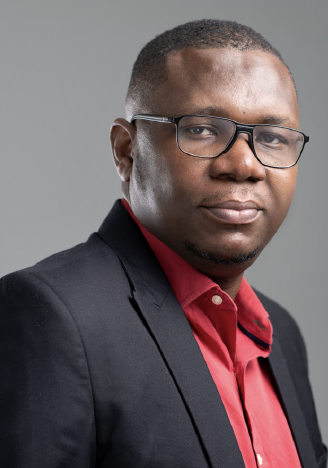 Dr. Daniel Kwadjo Dzidzienyo, Deputy Director of Administration, Teaching and Learning (ATL) at the West African Centre for Crop Improvement (WACCI), is leading a groundbreaking project aimed at revolutionizing Fonio cultivation. Fonio millets, also known as “hungry rice” or acha rice, have long been recognized as crucial grain millets originating from West Africa, with cultivation concentrated in the northern regions of Ghana.
Dr. Daniel Kwadjo Dzidzienyo, Deputy Director of Administration, Teaching and Learning (ATL) at the West African Centre for Crop Improvement (WACCI), is leading a groundbreaking project aimed at revolutionizing Fonio cultivation. Fonio millets, also known as “hungry rice” or acha rice, have long been recognized as crucial grain millets originating from West Africa, with cultivation concentrated in the northern regions of Ghana.
Fonio has been celebrated for its adaptability to subtropical climates, making it a vital food security crop in regions where major crops may struggle. However, despite its nutritional richness and resilience, fonio faces challenges such as low yields, susceptibility to lodging, and constraints during post-harvest processing.
Recognizing the urgency to address food security challenges in Africa, Dr. Dzidzienyo is undertaking a comprehensive study focusing on the genetic improvement of Fonio for high yield, increased grain size and resistance to lodging. His research aims to assess the genetic diversity of fonio accessions, develop high-yielding and lodging-resistant fonio varieties through mutation breeding technology, and identify candidate genes associated with high yield and lodging resistance through a genome wide association study.
Addressing these challenges is deemed paramount by Dr. Dzidzienyo to unlock fonio’s full potential. Improved fonio varieties have the potential to boost farmers’ yields, incomes, crop adaptability, and overall livelihoods. With the world population projected to reach 9.8 billion by 2050, according to the United Nations Report, the demand for food is expected to rise significantly. Dr. Dzidzienyo sees fonio as a key player in meeting this growing demand, particularly in regions prone to drought and less fertile soils.
This pioneering research aligns with global efforts to achieve food and nutritional security, making significant contributions to the ongoing dialogue surrounding sustainable agriculture, genetic improvement, and food security. As the world grapples with the need for innovative solutions, Dr. Dzidzienyo’s work stands as a beacon of hope, offering the promise of a brighter and more food-secure future for Africa.
